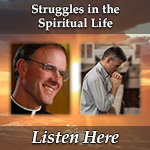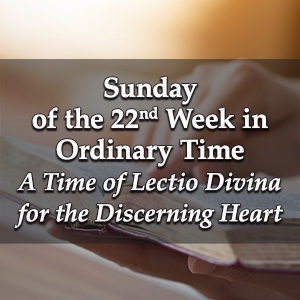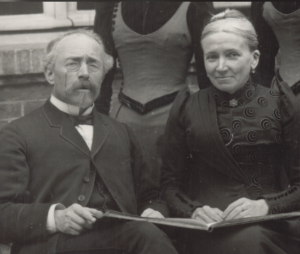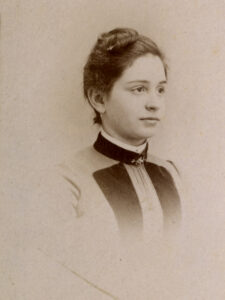Podcast: Play in new window | Download (Duration: 27:28 — 19.0MB) | Embed
Subscribe: Apple Podcasts | Spotify | Amazon Music | Android | Pandora | iHeartRadio | JioSaavn | Podchaser | Gaana | Podcast Index | Email | TuneIn | Deezer | Anghami | RSS | More

St. Gregory the Great, Part 2 – The Doctors of the Church: The Charism of Wisdom with Dr. Matthew Bunson
- Born: 540 AD, Rome, Italy
- Died: March 12, 604 AD, Rome, Italy
Dr. Matthew Bunson and Kris McGregor continue their discussion on the life and legacy of Pope Gregory I, also known as Gregory the Great. This time, they explore his pivotal role as a civil leader and spiritual giant during the decline of the Western Roman Empire. Gregory, the first monk to become Pope, was a towering figure in the Church who introduced significant liturgical reforms and emphasized the unity of the Church through its liturgy.
His influence extended to Gregorian Chant, although his exact role in its creation is uncertain. Gregory’s writings, including over 800 letters, homilies, and his “Pastoral Rule,” were monumental in shaping the Church’s doctrine and pastoral care. He also wrote a key text on the life of St. Benedict, which laid the foundation for monastic life that preserved Western culture through turbulent times.
Gregory’s focus on eschatology and the salvation of souls drove him to send missionaries, such as Augustine of Canterbury, to evangelize Europe, marking the beginning of widespread Christianization in the West. His humility and dedication to service are encapsulated in the title he coined for himself, “Servant of the Servants of God.” Gregory is seen as a bridge between the era of the Church Fathers and the emerging medieval Church, making him one of the most influential popes in history.
Discerning Hearts Reflection Questions
- Gregory’s Humility and Leadership: How can we cultivate humility in our own lives while effectively leading others in faith?
- Role of Liturgy in Faith Formation: In what ways does the liturgy shape our understanding and practice of the Catholic faith?
- Legacy of Gregorian Chant: How does the legacy of Gregorian Chant inspire us to appreciate the importance of sacred music in worship?
- Evangelization and Missionary Work: What lessons can we learn from Gregory’s missionary efforts in spreading the Gospel to new territories?
- Scripture as Nourishment: How can we deepen our relationship with God through a more contemplative reading of Scripture, as Gregory did?
- Service to the Church: How can we embody the spirit of being a “Servant of the Servants of God” in our daily interactions and ministry?
- Facing Modern Challenges with Faith: In what ways can Gregory’s approach to dealing with the crises of his time guide us in addressing contemporary issues in the Church?
For more on St. Gregory the Great and his teachings:
From Vatican.va, an excerpt from the teachings of Pope Benedict XVI General Audience 2008:
“In the theological plan that Gregory develops regarding his works, the past, present and future are compared. What counted for him more than anything was the entire arch of salvation history, that continues to unfold in the obscure meanderings of time. In this perspective it is significant that he inserted the news of the conversion of the Angles in the middle of his Book of Morals, a commentary on Job: to his eyes the event constituted a furthering of the Kingdom of God which the Scripture treats. Therefore, it could rightly be mentioned in the commentary on a holy book. According to him the leaders of Christian communities must commit themselves to reread events in the light of the Word of God: in this sense the great Pontiff felt he had the duty to orient pastors and the faithful on the spiritual itinerary of an enlightened and correct lectio divina, placed in the context of one’s own life.
Before concluding it is necessary to say a word on the relationship that Pope Gregory nurtured with the Patriarchs of Antioch, of Alexandria and of Constantinople itself. He always concerned himself with recognizing and respecting rights, protecting them from every interference that would limit legitimate autonomy. Still, if St Gregory, in the context of the historical situation, was opposed to the title “ecumenical” on the part of the Patriarch of Constantinople, it was not to limit or negate this legitimate authority but rather because he was concerned about the fraternal unity of the universal Church. Above all he was profoundly convinced that humility should be the fundamental virtue for every Bishop, even more so for the Patriarch. Gregory remained a simple monk in his heart and therefore was decisively contrary to great titles. He wanted to be – and this is his expression –servus servorum Dei. Coined by him, this phrase was not just a pious formula on his lips but a true manifestation of his way of living and acting. He was intimately struck by the humility of God, who in Christ made himself our servant. He washed and washes our dirty feet. Therefore, he was convinced that a Bishop, above all, should imitate this humility of God and follow Christ in this way. His desire was to live truly as a monk, in permanent contact with the Word of God, but for love of God he knew how to make himself the servant of all in a time full of tribulation and suffering. He knew how to make himself the “servant of the servants”. Precisely because he was this, he is great and also shows us the measure of true greatness.”
For more visit Vatican.va
For more from Dr. Matthew Bunson, check out his Discerning Hearts page.
Dr. Matthew E. Bunson is a Register senior editor and a senior contributor to EWTN News. For the past 20 years, he has been active in the area of Catholic social communications and education, including writing, editing, and teaching on a variety of topics related to Church history, the papacy, the saints and Catholic culture. He is faculty chair at Catholic Distance University, a senior fellow of the St. Paul Center for Biblical Theology, and the author or co-author of over 50 books including The Encyclopedia of Catholic History, The Pope Encyclopedia, We Have a Pope! Benedict XVI, The Saints Encyclopedia and best-selling biographies of St. Damien of Molokai and St. Kateri Tekakwitha.









 Sunday of the Twenty-Second Week in Ordinary Time – A Time of Lectio Divina for the Discerning Heart Podcast
Sunday of the Twenty-Second Week in Ordinary Time – A Time of Lectio Divina for the Discerning Heart Podcast



 Friday of the Twenty-First Week in Ordinary Time – A Time of Lectio Divina for the Discerning Heart Podcast
Friday of the Twenty-First Week in Ordinary Time – A Time of Lectio Divina for the Discerning Heart Podcast






